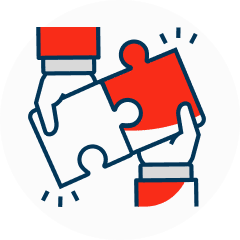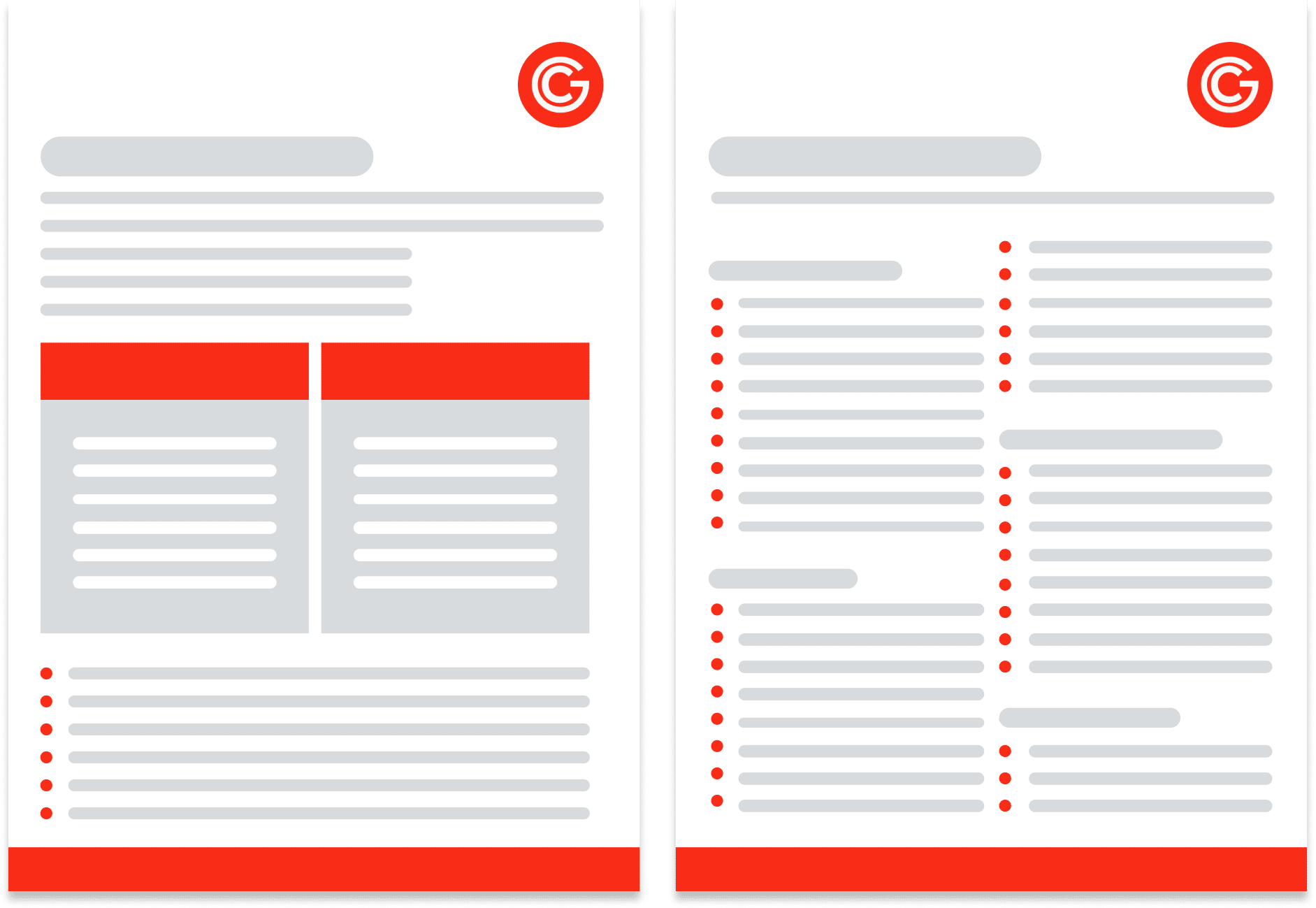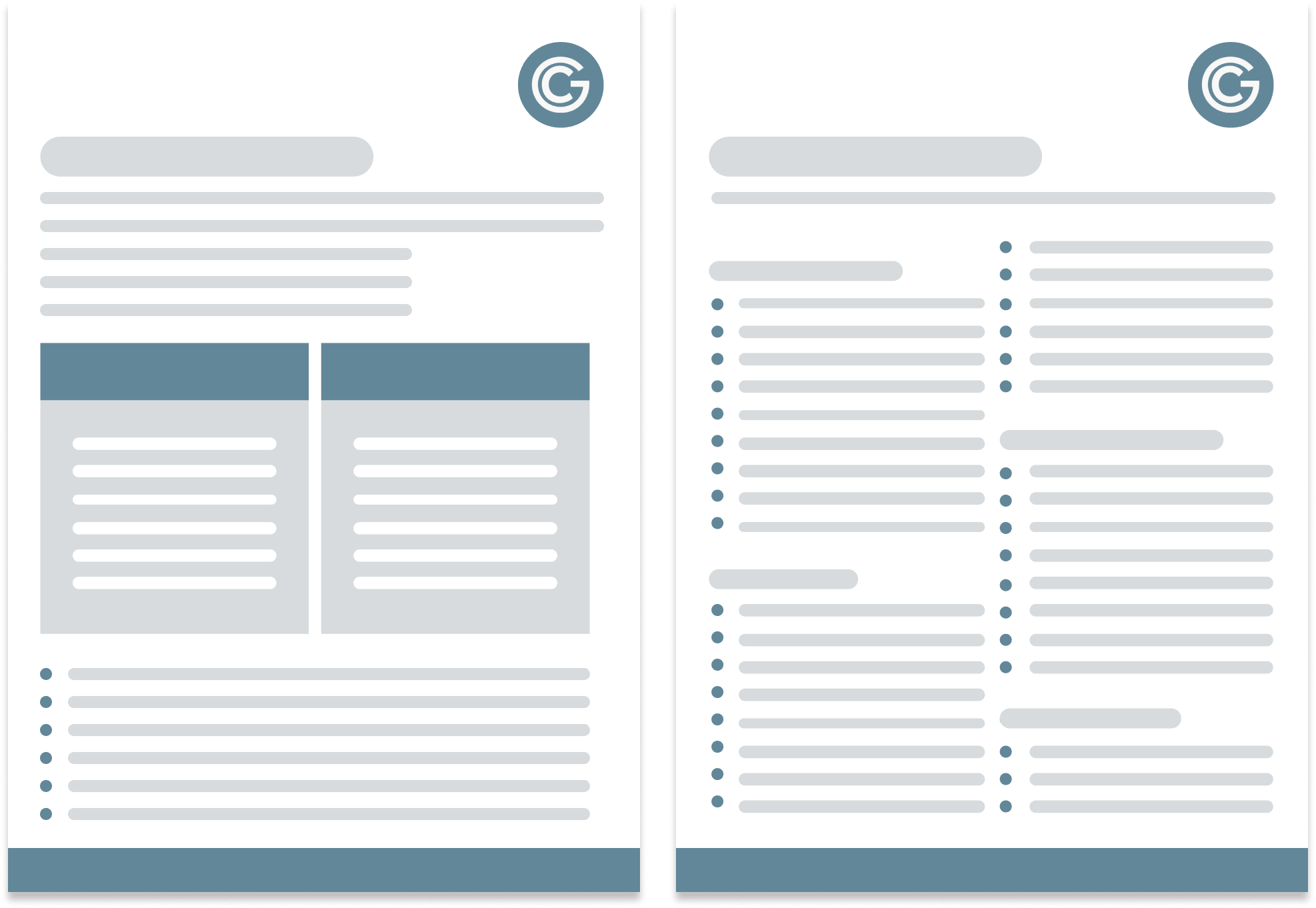

Business Ethics Standard
A practical framework to audit and improve responsible business practices across your organisation.
GoodCorporation’s Business Ethics Standard is a six-page business ethics framework designed to support the responsible management of any organisation. It sets out core management practices that can be applied to strengthen ethical business management and corporate responsibility.
Organisations can use the framework to benchmark ethical performance, implement good practice guidelines, and audit existing procedures, helping to identify strengths, address weaknesses and improve ethical compliance. GoodCorporation uses the Business Ethics Standard to assess employee ethics, supplier conduct, and governance practices, supporting companies in meeting both regulatory expectations and sector-specific ethical challenges.
Key principles covered by the framework

Employees: employees have clear and fair working conditions and are treated with respect.

Customers: customers are treated fairly with honest and transparent sales and marketing processes.

Suppliers: suppliers are selected fairly, they are treated well and the organisation ensures that suppliers meet minimum good standards across all aspects of business ethics and sustainability.

Business partners: partners are carefully selected, monitored and reviewed to ensure that good standards of practice are in place.

Environment: the organisation takes steps to identify, measure and reduce its environmental impact, complying with laws and industry codes as required.

Community: the organisation understands its impacts on the communities in which it operates and has effective systems in place to minimise any negative impacts.
Management commitment: the organisation is committed to establishing an ethical corporate culture that takes into account the interests of all stakeholder groups.
Shareholders (or equivalent) shareholders are regularly provided with a clear understanding of the organisation’s operations and finances together with evidence of its commitment to the principles and practices of good corporate governance.

Explore our frameworks
GoodCorporation's portfolio of proprietary frameworks act as practical guides for organisations looking to implement best practice and manage the wide range of ethics, compliance and sustainability challenges they face.

Frequently asked questions
A business ethics standard is a structured set of criteria that organisations can use to assess, manage, and improve ethical conduct across operations, ensuring alignment with legal requirements and stakeholder expectations.
The Business Ethics Standard sets out clear and measurable management practices that organisations can use to conduct a structured ethics audit. It enables a detailed assessment of how ethical principles are applied across areas such as governance, employee conduct and supplier management.
The framework helps identify risks, measure current performance against recognised good practice and support the implementation of improvements where needed. It provides a consistent basis for evaluating ethical business management and meeting corporate responsibility expectations.
Yes. The GoodCorporation Business Ethics Standard is adaptable across sectors and can be aligned with industry-specific requirements, including financial compliance, labour rights and responsible sourcing.
The Business Ethics Standard is designed for organisations looking to assess, strengthen, or audit their approach to ethical business management. It is used by compliance professionals, legal teams, procurement leads, and senior management seeking to implement good practice across core areas such as governance, employee conduct, and supply chain oversight.
The framework is suitable for businesses across a wide range of sectors, including financial services, manufacturing, consumer goods, and logistics, particularly those facing increasing expectations around corporate responsibility and ethical compliance. It provides a practical tool to evaluate existing procedures, benchmark performance, and address sector-specific challenges in line with recognised standard.
